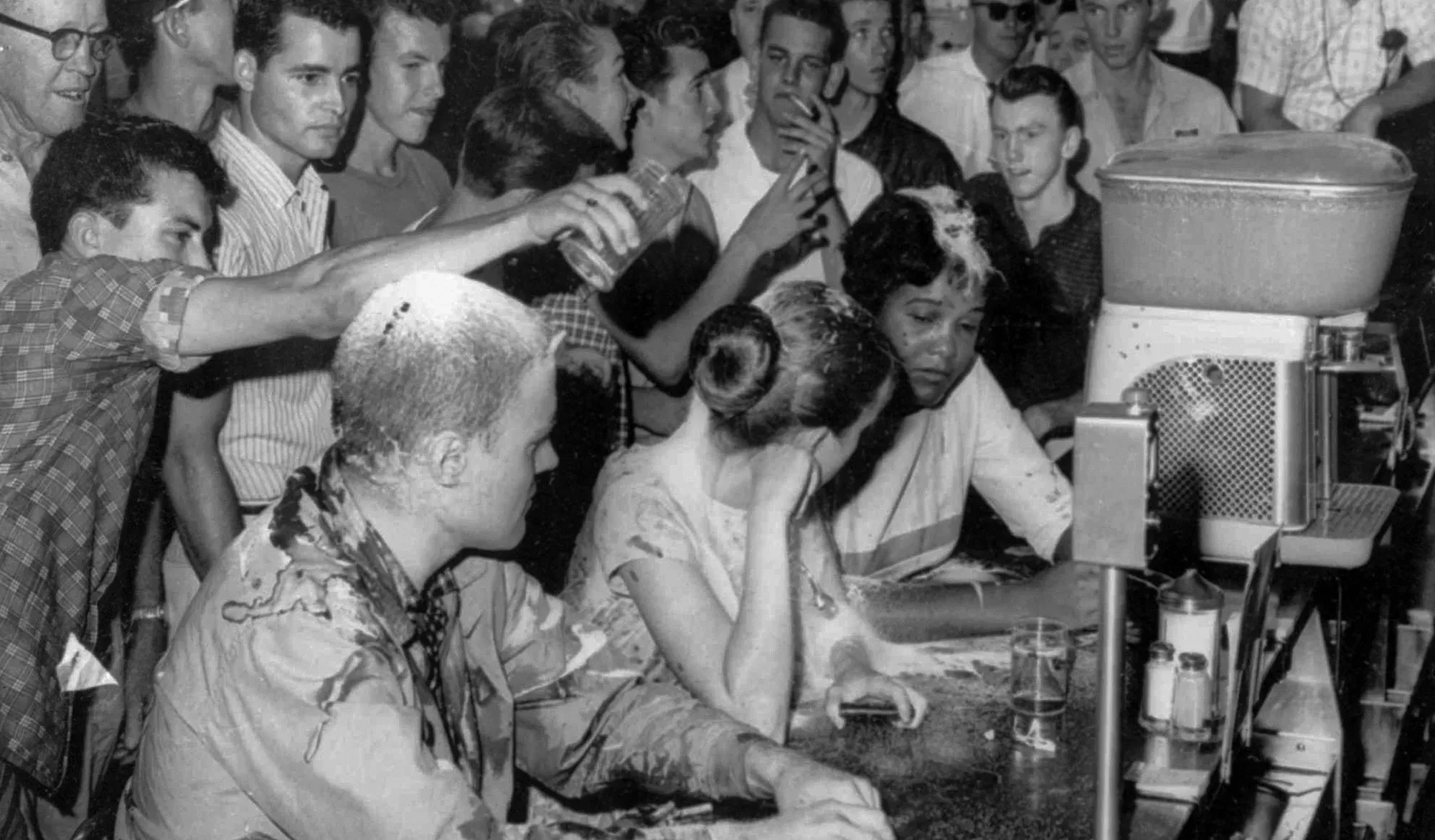Woolworth Sit-In was the Most Violent of More Than 300 Sit-Ins to End Segregation
On May 28, 1963, three young activists staged a sit-in at the whites-only Woolworth’s counter in downtown Jackson—an act met with brutal violence and national attention.
Their courage, captured in a defining moment of the Civil Rights Movement, helped pave the way toward the passage of the Civil Rights Act of 1964.

Pearlena Lewis, Annie Moody, and Memphis Norman sat at the whites-only counter at Woolworths for lunch in downtown Jackson. They were met with the most gruesome acts of degradation, explicit name-calling, and pure humiliation. They were doused with sugar, mustard, ketchup, and leftover food. Norman bore the biggest brunt after he was pushed to the ground and kicked repeatedly. There were more than 300 sit-ins to end segregation, but the Woolworth sit-in was deemed the most violent.
“Memphis Norman got kicked to the point where he was bleeding out of every hole in his head,” Joan Trumpauer Mulholland said in an interview for the 60th anniversary of the horrifying event.
As a white patron, Mulholland’s presence made the enraged white crowd angrier. It was May 28, 1963, and it was more than frowned upon for Black people to sit at a whites-only counter. However, the Tougaloo student activists were part of a larger strategy for a domino effect of eliminating segregation. Lewis was the NAACP North Jackson Youth Council President, and Moody and Norman were Tougaloo student activists. They put the plan together with Medgar Evers, then the NAACP Field Secretary.
After the sit-in progressed to violence so quickly, Evers wanted to call the sit-in off, but the activists refused. They wanted to sit it out literally. The bullying, violence, and verbal humiliation lasted for three hours, with police inside the facility watching the attacks.

“You’re talking about people putting out a lit cigarette on your skin,” said Gwen Harmon, former Manager of Smith Robertson Museum, in an interview with WLBT. “We’re talking about them breaking an actual glass container that held sugar and coming at you with a ragged glass edge. We’re talking about hot coffee being splashed in your face.”
It was more than demeaning for Black people to watch white people sit at the counter and eat with dignity as they walked to the restaurant’s back door and waited for assistance. It was dehumanizing. But their actions were not in vain. The following year, the Civil Rights Act of 1964 was passed to end segregation in public and private places. It wasn’t an immediate road to desegregation, but it was the legal blow that has kept the progression of the movement over the years.
“Keep pushing,” Evers said. “Don’t ever give up. Strategize, pull others in.”
